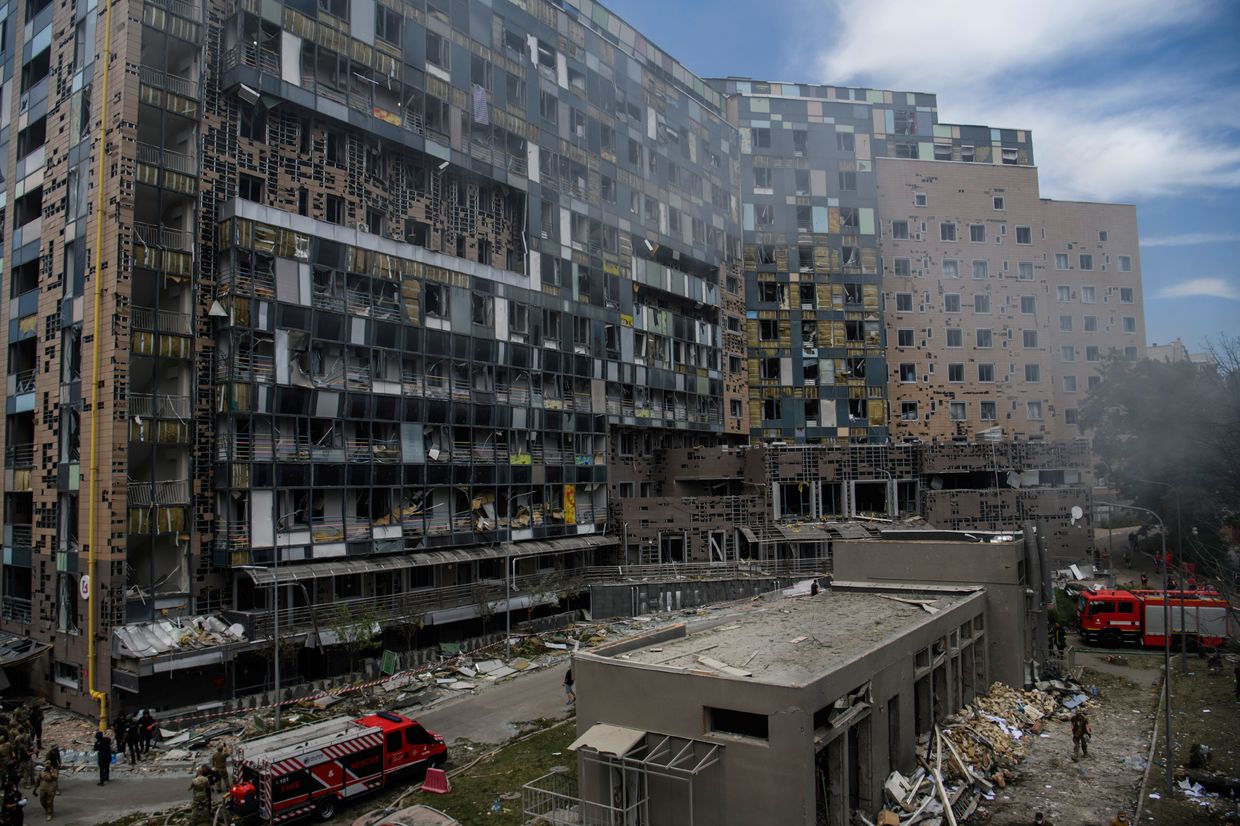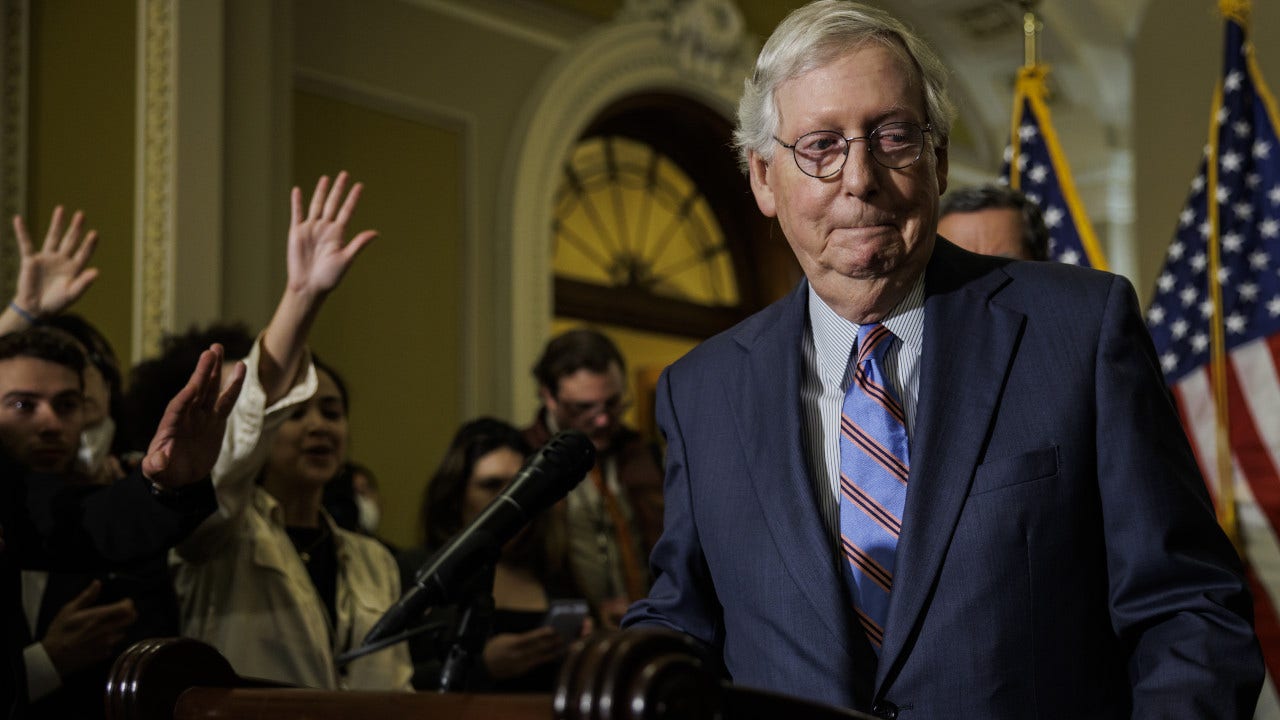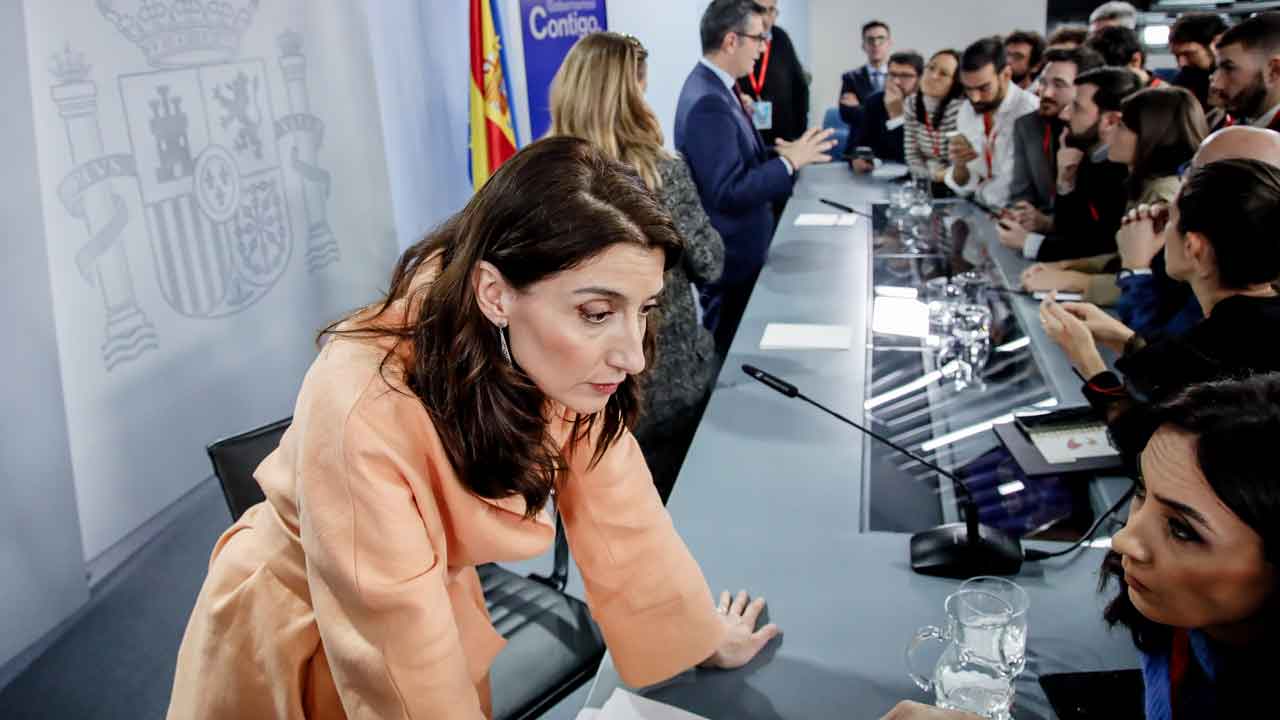By JAMIE KITTEN (Associated Press)
Kyiv, Ukraine (AP) — Russia refrained Monday from launching a new round of strikes on power plants and other key infrastructure in Ukraine, as officials warned that a lingering energy and water crisis stemming from previous attacks could prompt more evacuations from the capital.
Ukrainian Foreign Minister Dmitriy Kuleba, hosting the largest delegation of senior foreign officials since Russian President Vladimir Putin ordered Russia’s invasion of Ukraine more than nine months ago, insisted that better air defenses were needed from allies “to break this vicious circle” of Russian airstrikes. followed by the Ukrainian restoration of the damaged infrastructure.
“Every time we rebuild it, the Russians will destroy it,” he told colleagues from the seven Baltic and Northern European countries.
The foreign ministers of Estonia, Latvia, Lithuania, Iceland, Sweden, Norway and Finland promised to increase military, economic and humanitarian aid in connection with the deepening of the energy crisis and the attempts of Ukrainian troops to launch a counteroffensive against Russian troops.
Sweden said it had provided the military with a 270 million euro ($279 million) package of air defenses, ammunition, all-terrain vehicles and personal winter gear. Finland has promised to accept more Ukrainian refugees. In Washington, White House National Security Council spokesman John Kirby said the US is working with partners and allies to provide Ukraine with energy and water replacement equipment.
In Israel, which has a fine political line in the conflict, Channel 13 reported that a high-level Ukrainian delegation recently visited to discuss Israel’s promise to provide a system that detects incoming missiles. Israel’s Defense Ministry declined to comment.
Israel has expressed support for Ukraine, but has so far refused to provide it with weapons or impose sanctions against Moscow because of its sensitive ties to Russia. Israeli and Russian militaries are cooperating to avoid conflict in Syria. Israel also does not want to endanger the numerous Jewish community in Russia.
Ukrainian President Volodymyr Zelensky warned late on Sunday that Russian troops are “preparing new strikes, and as long as they have missiles, they will not stop.” On Monday, he met with senior government officials to discuss what measures to take.
“The coming week could be as difficult as the last,” he predicted.
NATO Secretary General Jens Stoltenberg insisted that Putin intends to use frost, snow and ice to his advantage not only on the battlefield, but also against the Ukrainian civilian population.
“President Putin is now trying to use winter as a weapon of war against Ukraine, and this is terrible, and we must be ready for new attacks,” he said ahead of a two-day meeting of NATO foreign ministers, including those who visited Kyiv on Monday. — in Bucharest, Romania. “That is why NATO allies have increased their support for Ukraine.”
Kyiv Mayor Vitali Klitschko said some of the city’s 3 million residents may have to be evacuated to places where essential services will be less susceptible to blackouts caused by missile attacks.
For several weeks, Russia has launched missile strikes on energy facilities around Kyiv and other Ukrainian cities, usually on Mondays at the start of the work week, causing power and water outages.
Based on the pattern of attacks on the infrastructure and the time of preparation of the Russian military, the adviser to the Minister of Internal Affairs of Ukraine stated on national television that the next strikes could take place in a week. The Ukrainian military representative also said on national television that the Russian aviation intensified its activity over Ukraine on Monday.
With temperatures hovering around freezing and expected to drop to minus 11C (12F) in just over a week, international aid has increasingly focused on items such as generators and transformers to ensure blackouts affect everything from kitchens to operating hours are as limited and short as possible. The electricity situation was so dire that a Ukrainian energy trader — normally an exporter — tried importing electricity from neighboring Romania.
Putin “continues to try to turn Ukraine into a black hole – no light, no electricity, no heating, to plunge Ukrainians into darkness and cold,” said the head of European diplomacy, Joseph Borel, who heads the meeting of EU ministers in Bucharest. to help Ukraine in its humanitarian crisis. “Therefore, we must continue our support by providing more supplies for Ukrainians to survive the winter without electricity.”
Ukraine’s electricity supplier Ukrenergo said on Monday that 27% of production was still missing and that “the scale and complexity of the damage is high and repair work is ongoing around the clock”.
Electricity has been restored to 17% of residents of the southern city of Kherson, which Ukraine reclaimed earlier this month. The Russians continued to bombard the city with artillery fire from newly fortified positions on the Dnieper. Britain’s Ministry of Defense said the number of strikes reached a record 54 on Sunday.
In his late-night video message on Monday, Zelensky said that over the past week, Russian troops fired 258 times on 30 settlements in the Kherson region and damaged a water pumping station for Mykolaiv.
The administration of Ukraine’s president said on Monday that at least four civilians were killed and 11 others were injured in the latest Russian attacks. It says that intense fighting continues in the east, the Russians are shelling Bakhmut and Taretsk.
“People are hiding in basements, many of which are filled with water,” Donetsk Governor Paulo Kirilenko said. “They lived in catastrophic conditions without electricity or heating.”
Also on Monday, Russia denied that it plans to withdraw troops from the Zaporizhia nuclear power plant in southern Ukraine, which it has occupied since the first days of the war.
The press secretary of the Kremlin, Dmitriy Piaskov, said in a conversation with journalists that it is pointless to look for signs of leaving the factory, “if there are none and there cannot be.”
Peskov’s comment was a response to Ukraine’s claims that Russian troops had to withdraw from the nuclear power plant because they faced a Ukrainian counteroffensive.
The plant was shut down due to repeated shelling, for which Russia and Ukraine exchanged blame. The UN nuclear agency and international leaders have called on Russia to demilitarize the station to avoid a nuclear disaster, but Moscow has rejected those demands, saying it needs to keep troops there to ensure its security.
Also on Monday, a Russian official told the TASS news agency that nuclear workers who refused to sign contracts with a Russian company that claims to be taking over the plant’s work have been barred from entering.
—-
Rafe Casert contributed from Brussels and Andrew Cattell from New York.
___
Follow AP’s coverage of the war in Ukraine at: https://apnews.com/hub/russia-ukraina










